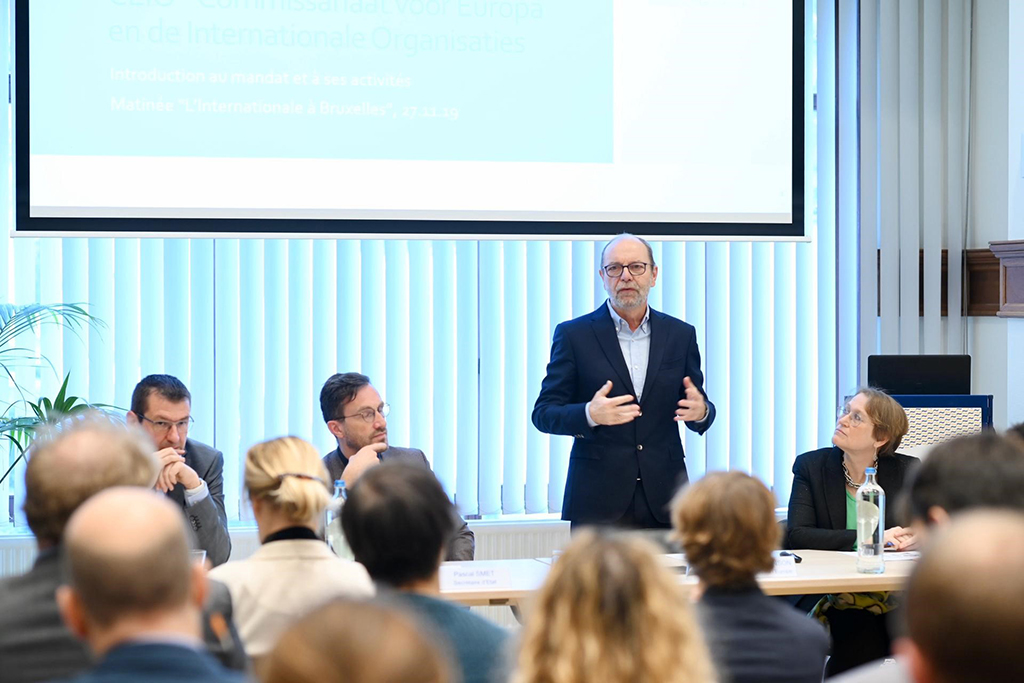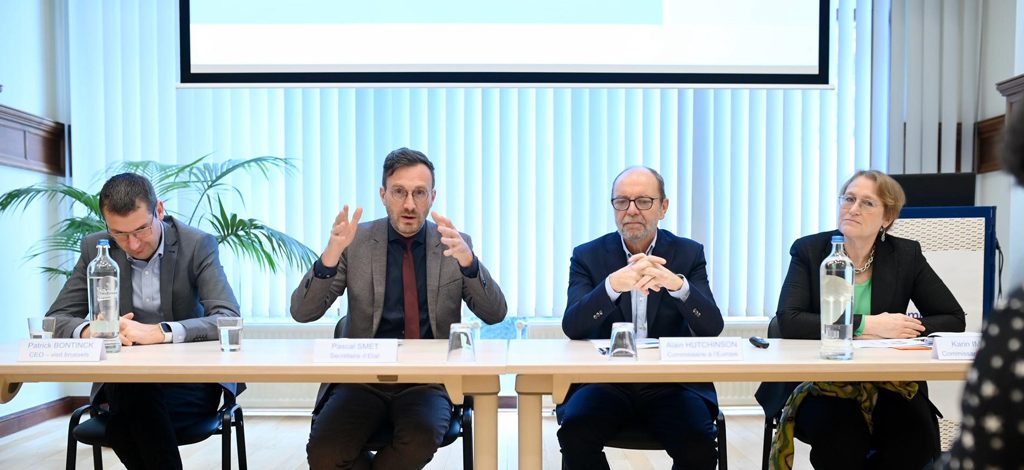International presence in Brussels: impact and interaction with the region
On 27 November 2019, the Brussels Commissioner for Europe and International Organisations invited the heads of the regional services and bodies that engage with international institutions in Brussels to a morning information session.
In addition to being a capital, Brussels is also a policy centre of global significance. The Brussels Capital-Region (BCR) is home to the European Union, NATO and several other international organisations. With 181 embassies, more than 5,000 diplomats and 1,000 lobbying organisations, the city surpasses cities such as Washington D.C., New York or Geneva.
The Brussels Regional Government decided to develop a proper policy of providing seats for international organisations in order to welcome and coordinate this international presence. Consequently, it created the position of Commissioner for Europe and International Organisations in 2014.
The Brussels Government’s policy of providing seats
The morning information session, which the Commissioner hosted on 27 November 2019, targeted the various regional public services, public interest organisations, administrations, and research centre that contribute to the BCR’s development and international reputation.
Pascal Smet, the State Secretary for European and International Relations, opened the session. He outlined the main objectives, including the implementation of an international service-oriented policy and an integrated policy for the international representation and influence of Brussels.
The region wants to capitalise more on the role that Brussels plays in Europe, positioning the region on the international level as a global, open metropolis, that excels at innovation and culture, and is a gateway to the European institutions.
Supporting Brussels’ international vocation
In the past five years, Alain Hutchinson, Commissioner for Europe and International Organisations, has established a constructive dialogue between the regional government and Brussels and international administrations. In his review of these past five years, he stressed the challenges that Brussels faces, as part of its international vocation, including welcoming diplomats, officials and their families, the protection of institutional sites and urban security, as well as mobility and urban planning in the European Quarter.

To meet these challenges, the BCR must convince policy-makers and the administrations, as well as citizens of the assets of this international presence, while always ensuring that this does not interfere with the life of the people of Brussels.
The international presence is increasingly contributing to the BCR’s reputation, in addition to bringing wealth to the city, which is why it must be preserved and developed. This is a new challenge for Brussels, in a world where capitals are increasingly competing with each other.



